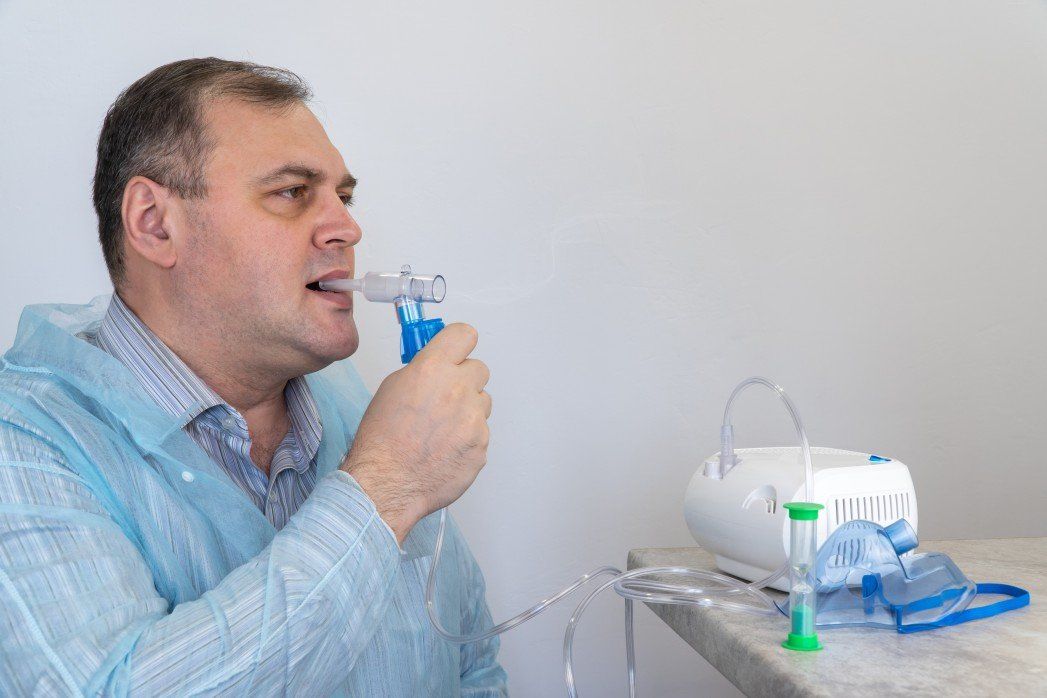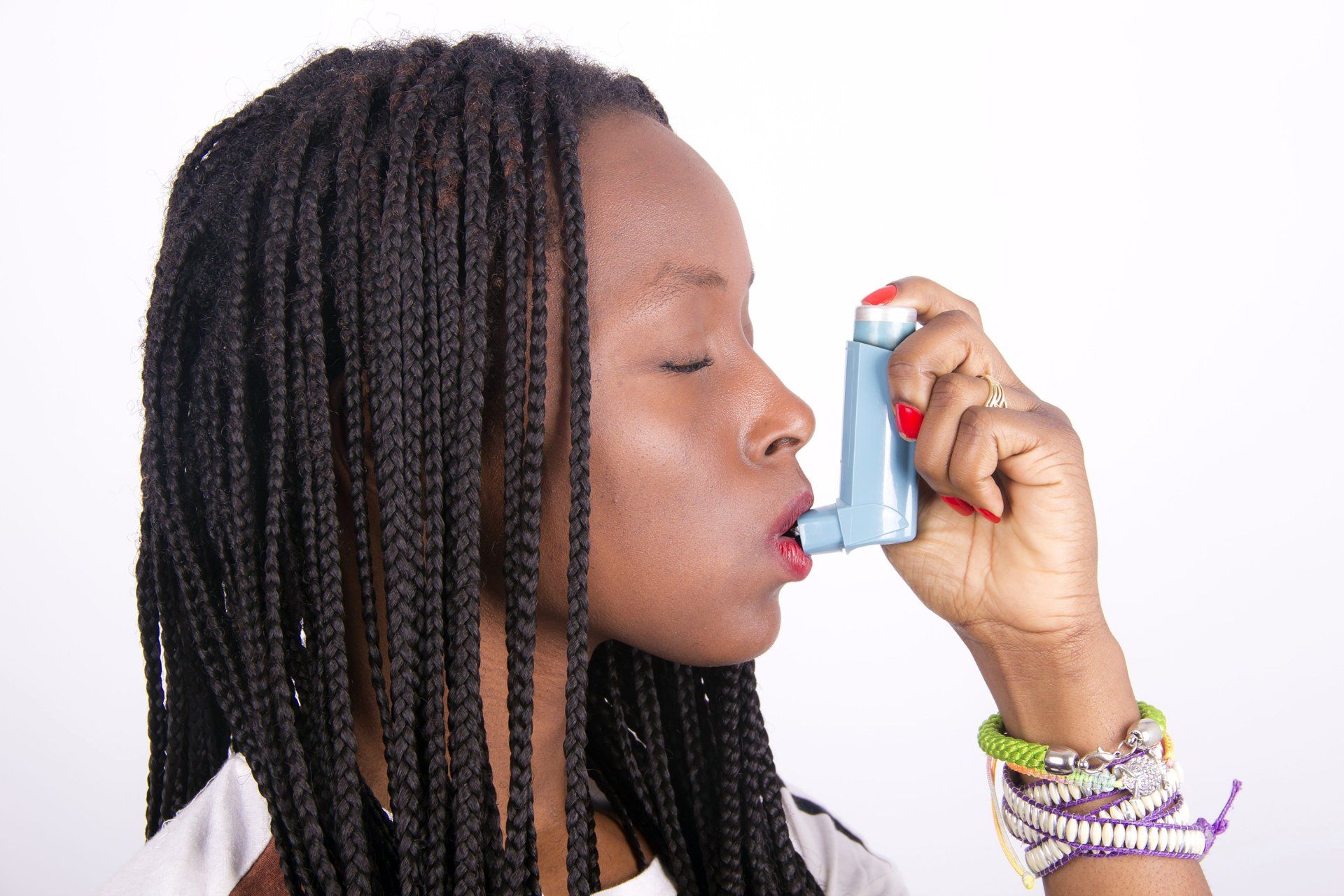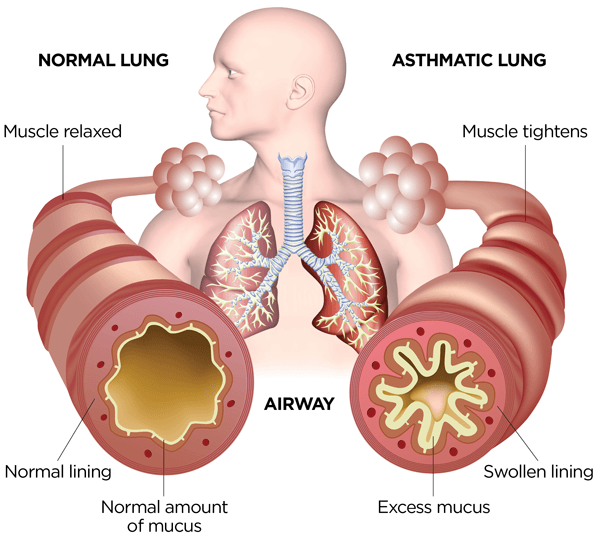
Shortness of Breath
Feeling short of breath can be scary! This article will explore some common causes for shortness of breath as well as some general recommendations to help alleviate shortness of breath.

Source: American Thoracic Society
Authors: Suzanne C. Lareau RN, MS, Bonnie Fahy RN, MN, Paula Meek PhD, RN
Reviewers: Marianna Sockrider MD, DrPH, Jane Martin, MA, RCP
What causes me to fee short of breath?
Many things can cause breathlessness, including:
- Chronic lung disease (chronic means that you have it all the time)
- A sudden lung problem (called an acute problem) like an infection, such as pneumonia or COVID-19
- A flare-up of chronic lung disease due to infection
- Inhaling dust, chemicals, or other hazards in the air outside or inside your home
- Heart conditions such as a “heart attack” or heart failure
- Lung cancer or chemotherapy for other cancers
- Anemia (low red blood cell count)
- Low fitness level (being ‘out of shape’) Shortness of breath may come on with activities you know will cause a problem, such as taking a walk or climbing stairs.
Sometimes it may seem like it comes on for no reason all. Tell your healthcare provider about your breathing problem and how it is affecting your life. Be sure to include:
- When the shortness of breath started (for example, suddenly, two days ago)
- What (if anything) makes your breathing better (for example, using your albuterol inhaler) or makes it worse (for example, showering or walking across a room)
- If you usually bring up mucus, are you bringing up more or less than usual? Has the color or thickness changed? Does it have a bad odor?

What can I do to treat or reduce breathlessness?
Often there are things you can do to limit or control shortness of breath. The first step is to figure out what is causing the problem. Work with your healthcare provider to find out what is causing it and what the best treatment may be. Many times, you will have to try many different treatments before you find one that helps you.
Below are some things that may help your shortness of breath.
- Take your medications as prescribed. You may need to take some medicines every day, even if your breathing is good. This may be the main reason many people have shortness of breath.
- Ask a respiratory healthcare professional to show you how to use your inhaler(s) and/or nebulizer. Ask about using a holding chamber with your inhaler to get as much medicine as possible into your lungs. Tell your healthcare provider about any problems you experience from your medicines.
- Oxygen is a medicine and may help people with low oxygen levels breathe easier. Oxygen is not for people who are short of breath from other conditions.
- Learn breathing techniques. There are special ways you can breathe that may help when you are short of breath. For example, if you have chronic obstructive lung disease (COPD), you may be taught pursed-lip breathing. This will help you breathe more effectively. Pursed lip breathing helps remind you to slow down your breathing and take longer to exhale than inhale.
- Even if you have shortness of breath with just a little activity, it is possible to get back some strength and endurance/stamina. You may have given up or avoided activities because of your lung problems, but if you do not exercise, your muscles will get even weaker. Being ‘out of shape’ can result in even more breathing problems. Ask your healthcare provider to refer you to a pulmonary rehabilitation program. These programs are designed especially for people with chronic lung disease. The trained staff can help you exercise safely by carefully supervising you and you will learn how better manage your chronic lung disease. If pulmonary rehabilitation is not available in your area or you are unable to go, ask your healthcare provider to refer you to a physical therapist. A therapist will talk with you about your activity and observe how you move. You will then get an exercise program that fits your needs and limitations. It is important to exercise at a level that is safe for you.
- Pace yourself. If you are rushing around doing chores or activities, you need to slow down. You can pace yourself by walking more slowly instead of rushing and stopping. You can do this by breaking big chores into small parts. If you feel “strongest” and less short of breath in the mornings, do your harder activities then.
- Find out if your body weight is right for you. If you are overweight, your belly could be pushing up on your lungs. If you are underweight, you may be losing muscle. A registered dietician can help by making food suggestions that are best for you. If you have trouble eating, prepare foods that are easy to chew. Holding your breath while you chew food may make you more short of breath.
- Try not to hold your breath. Breath holding can become a habit when you are lifting or reaching for something, or even getting out of a chair. Inhale, then exhale (breathe out) when you are doing the hardest part of an activity like pushing open a door or bending over. Also, try to breathe out two times longer than you breathe in, but never force the air out. Use pursed-lips breathing and let the air ‘roll’ out of your lungs. When you walk, try breathing in when you take one step and breathe out as you take two to three steps. This may cause you to walk more slowly, but you may be able to walk further without stopping.
- Use a fan. You may find that a fan blowing on your face will ease your shortness of breath. Use a fan when you feel short of breath or “closed in” along with doing pursed-lips breathing can help.
- Ask your healthcare provider about medications to help decrease your shortness of breath. Sometimes a medicine used to treat anxiety or reduce pain can help decrease shortness of breath.
Recent Posts
-
Providers
Button
-
Locations
Button
-
Sleep Labs
Button
Subscribe to our
Newsletter
Our newsletter is focused on bringing you the latest in news about our office, medical advances, and health & wellness tips.
Join the Newsletter
Thank you subscribing to our newsletter.
Oops, there was an error sending your message.
Please try again later

Southeastern Lung Care, All Rights Reserved.
Website Design: BAC MediaGroup, LLC








